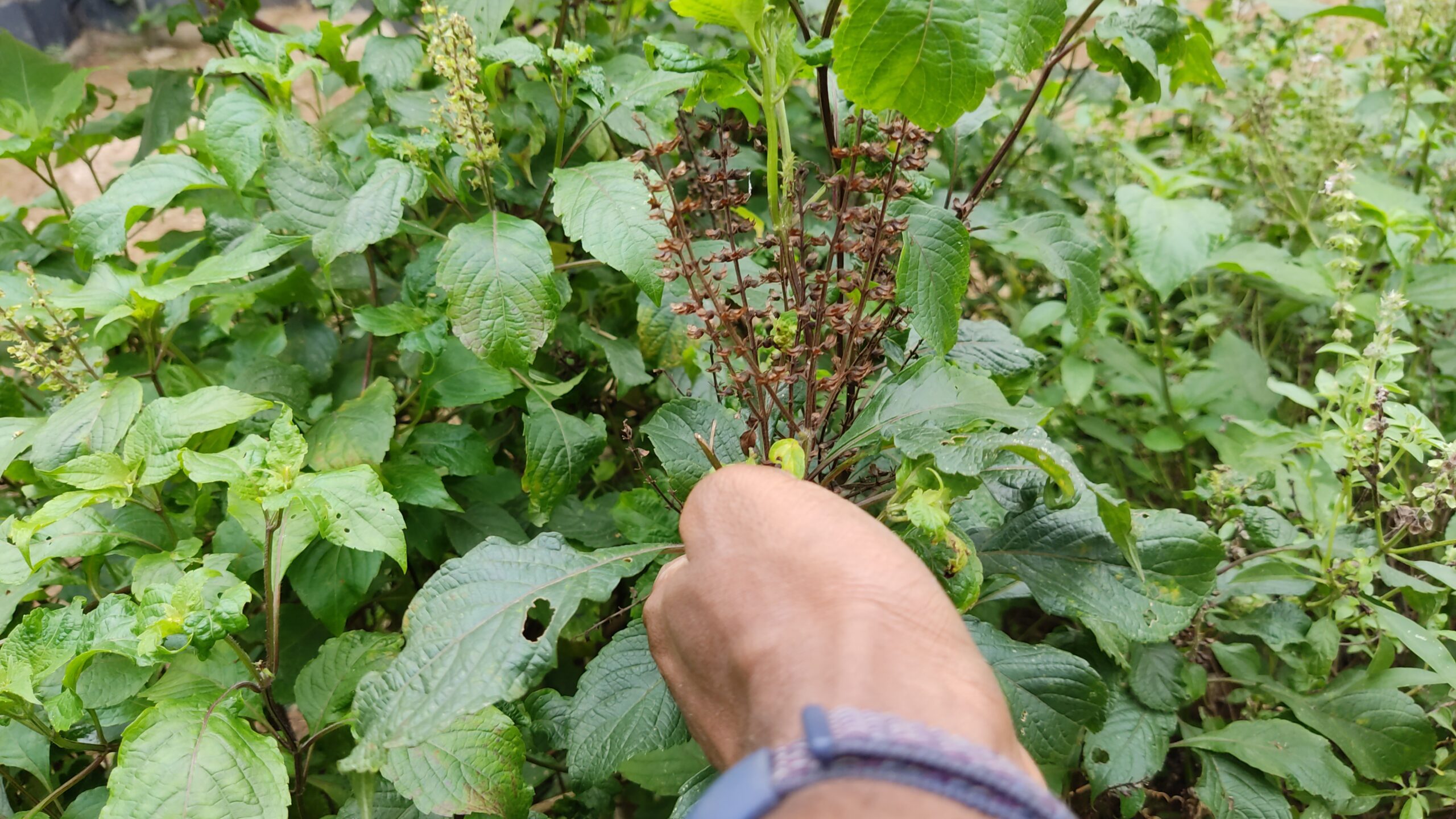- This topic is empty.
- AuthorPosts
- January 21, 2025 at 11:15 pm #543177

Scent leaf, scientifically known as *Ocimum gratissimum*, is a herbaceous plant native to tropical regions of Africa and Asia.
Known for its aromatic leaves, it is commonly used in culinary and medicinal applications. However, less commonly discussed is the scent leaf seed, which holds a treasure trove of benefits and potentials.
This article delves into the various aspects of the scent leaf seed, exploring its properties, uses, and potential benefits.
1. Botanical Overview and Characteristics
The scent leaf plant, also called African basil, thrives in tropical climates and is characterized by its fragrant leaves.
The seeds of this plant are small, oval-shaped, and dark brown. Botanically, the scent leaf seed is a product of the flowering stage of the plant, containing the genetic material required to propagate new plants.
These seeds are not only vital for cultivation but also possess a range of properties that make them interesting for various uses.
Their botanical characteristics make them suitable for growing in diverse soil types, provided there is adequate moisture and sunlight.
2. Nutritional Profile and Health Benefits
Scent leaf seeds are a nutritional powerhouse, packed with essential nutrients that can contribute to overall well-being. They are rich in essential fatty acids, proteins, and fiber.
The seeds also contain a variety of vitamins and minerals, including calcium, magnesium, and potassium.
These nutrients support various bodily functions, from improving digestive health to boosting the immune system.
Moreover, the seeds have been traditionally used in folk medicine to treat ailments such as coughs, colds, and digestive disorders.
Their high antioxidant content also plays a role in neutralizing free radicals, potentially reducing oxidative stress and inflammation.
3. Culinary Uses and Preparation
In the culinary world, scent leaf seeds are less common but can add a unique flavor and nutritional boost to dishes.
The seeds can be ground into a powder and incorporated into smoothies, soups, or sauces. They can also be used as a seasoning or garnish in a variety of dishes.
Their mild, nutty flavor complements many foods, making them a versatile ingredient in both savory and sweet recipes.
Preparation is straightforward: the seeds can be toasted lightly to enhance their flavor before use. Additionally, incorporating scent leaf seeds into your diet can provide a novel way to enjoy the benefits of this remarkable plant.
4. Agricultural and Cultivation Aspects
Growing scent leaf from seeds requires specific conditions to ensure optimal growth. The seeds should be planted in well-draining soil and placed in a location with ample sunlight.
Proper watering is crucial, as the seeds need a consistently moist environment to germinate. Scent leaf plants are relatively low-maintenance and can be cultivated in pots or garden beds.
However, attention to pest management and soil health is essential to achieve a healthy crop. For those interested in sustainable agriculture or home gardening, scent leaf seeds offer an opportunity to cultivate a plant that not only contributes to personal health but also supports local biodiversity.
5. Potential Applications and Future Research
The scent leaf seed holds promise beyond its traditional uses. Ongoing research is exploring its potential applications in various fields.
For instance, studies are investigating the use of scent leaf seed extracts in pharmaceuticals and cosmetics due to their antioxidant and antimicrobial properties.
Additionally, the seeds’ potential as a natural pest repellent and their role in improving soil health are areas of active research.
As scientists continue to uncover new applications, the scent leaf seed may prove to be a valuable resource in both traditional and modern contexts.
In conclusion, the scent leaf seed is a remarkable component of the scent leaf plant with a wide array of benefits and applications.
From its nutritional value and culinary versatility to its agricultural significance and potential for future research, the scent leaf seed is deserving of more attention.
Whether you’re a gardener, a health enthusiast, or simply curious about new ingredients, exploring the scent leaf seed can offer valuable insights and opportunities.
As research advances and more people discover its benefits, the scent leaf seed may become an even more integral part of our daily lives.
Read Also: What does scent leaf cure?
- AuthorPosts
- You must be logged in to reply to this topic.

